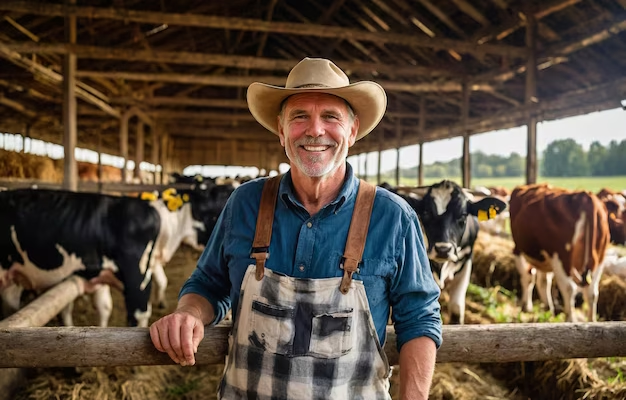New Zealand is not only famous for its stunning landscapes, pristine beaches, and friendly locals—it’s also a global hub for agriculture and farming. For job seekers looking to work in a dynamic and nature-connected environment, farm jobs in New Zealand offer a golden opportunity.
Whether you’re a backpacker, a seasonal worker, or someone looking to settle with long-term employment, New Zealand’s farming sector has roles for everyone. From fruit picking and dairy farming to machinery operation and livestock management, this industry welcomes both locals and foreigners.
In this guide, we’ll cover the types of farm jobs available, qualifications required, visa options, and how to apply for the latest opportunities.
Why Choose Farm Jobs in New Zealand?
New Zealand’s economy heavily relies on agriculture. The country exports high volumes of dairy, meat, wool, fruits, and wine, making it essential to have a strong and consistent workforce in the farming sector.
Here’s why farm jobs are an attractive option:
-
High Demand: With a shortage of workers, especially in rural areas, employers often offer competitive wages and accommodation.
-
Work-Life Balance: Farm life provides a peaceful environment, ideal for those seeking balance and simplicity.
-
Visa Opportunities: Farm work is often associated with visa extensions for travelers and migrants.
-
Skill Development: Gain hands-on experience with advanced farming technologies and sustainable practices.
Types of Farm Jobs in New Zealand
Depending on the region and season, you can find various roles that suit different skill levels. Some common farm jobs in New Zealand include:
1. Fruit Picking and Packing
Usually seasonal (summer/autumn), jobs include picking apples, kiwis, cherries, grapes, and berries. No prior experience is needed.
2. Dairy Farming
New Zealand is one of the world’s top dairy exporters. Dairy jobs range from milking and feeding cattle to managing large-scale farms.
3. Vineyard Work
Tasks include pruning, thinning, harvesting, and wine processing—especially in regions like Marlborough and Hawke’s Bay.
4. Farm Machinery Operation
Operating tractors, harvesters, and irrigation systems. These jobs often require prior experience or training.
5. Animal and Livestock Care
Includes sheep shearing, cattle rearing, and general animal care duties.
Do You Need Qualifications?
Most entry-level farm jobs in New Zealand do not require formal qualifications. However, having relevant experience or certifications (such as machinery operation or animal husbandry) can be a plus.
For skilled roles like farm managers or agronomists, a degree or diploma in agriculture or related fields is usually required.
Can Foreigners Apply for Farm Jobs?
Yes, many farm jobs in New Zealand are open to foreigners, especially under seasonal worker schemes. Here are a few visa options:
-
Working Holiday Visa: Ideal for backpackers under 30–35 years (depending on country).
-
Recognised Seasonal Employer (RSE) Scheme: For citizens of eligible Pacific countries.
-
Essential Skills Work Visa: For skilled farm workers sponsored by an employer.
-
Accredited Employer Work Visa (AEWV): For long-term employment with accredited farms.
Ensure you meet health, character, and visa requirements before applying.
Regions with the Most Farm Jobs
Different regions specialize in different agricultural products. Here’s a breakdown:
-
Canterbury: Dairy, sheep farming, grain.
-
Hawke’s Bay: Vineyards, apples, stone fruits.
-
Marlborough: Wine and vineyards.
-
Bay of Plenty: Kiwifruit and avocado.
-
Southland: Large-scale dairy and livestock farms.
The best time to apply for seasonal work is just before the harvest season, typically between September and April.
Average Salary for Farm Jobs in New Zealand
While pay varies depending on role and region, here are general figures:
| Job Type | Hourly Rate (NZD) |
|---|---|
| Fruit Picker | $23 – $28 |
| Dairy Farm Assistant | $25 – $30 |
| Machinery Operator | $28 – $35 |
| Farm Manager | $35 – $50 |
Some jobs include free accommodation and meals, which significantly boosts savings.
How to Apply for Farm Jobs in New Zealand
To get started, you can apply through job boards, recruitment agencies, or directly through farm owners. Many employers also advertise openings on social media platforms and local community boards.
Here’s a shortcut to get you started:
👉 Apply Now
For better chances:
-
Prepare a simple CV highlighting any physical or farming experience.
-
Include your visa status and availability.
-
Be ready for immediate travel to rural areas.
Tips to Get Hired Faster
-
Stay Flexible: Willingness to relocate and do physically demanding work increases your chances.
-
Apply Early: Don’t wait for the peak season; employers often hire in advance.
-
Join Online Communities: Facebook groups and forums for New Zealand farm workers often post daily openings.
-
Use Trusted Sites: Apart from Glassdoor, sites like www.jobsl2.com post updated farm job listings and visa info for job seekers globally.
Safety and Work Conditions
New Zealand enforces strong health and safety regulations for all workers. You’ll receive training on how to use tools, handle animals, and work safely in extreme weather conditions.
Make sure to:
-
Wear protective gear
-
Follow hygiene rules (especially around animals)
-
Report any injuries immediately
What to Expect from Rural Life
Life on a farm is unique—less noise, fewer distractions, and plenty of fresh air. However, it can also mean:
-
Limited internet access
-
Long working hours (sometimes early mornings)
-
Basic living conditions
Still, it’s a rewarding experience that offers both income and personal growth.
Final Thoughts
With a strong demand for labor, good pay, and visa options, farm jobs in New Zealand are perfect for travelers, skilled workers, and immigrants seeking a stable future. Whether you’re looking for a seasonal fruit-picking gig or a long-term dairy farm role, there’s no shortage of opportunities.
Stay updated with the latest listings and application tips by visiting www.jobsl2.com, your one-stop portal for global job opportunities.
Start your farming adventure today—New Zealand is waiting!
